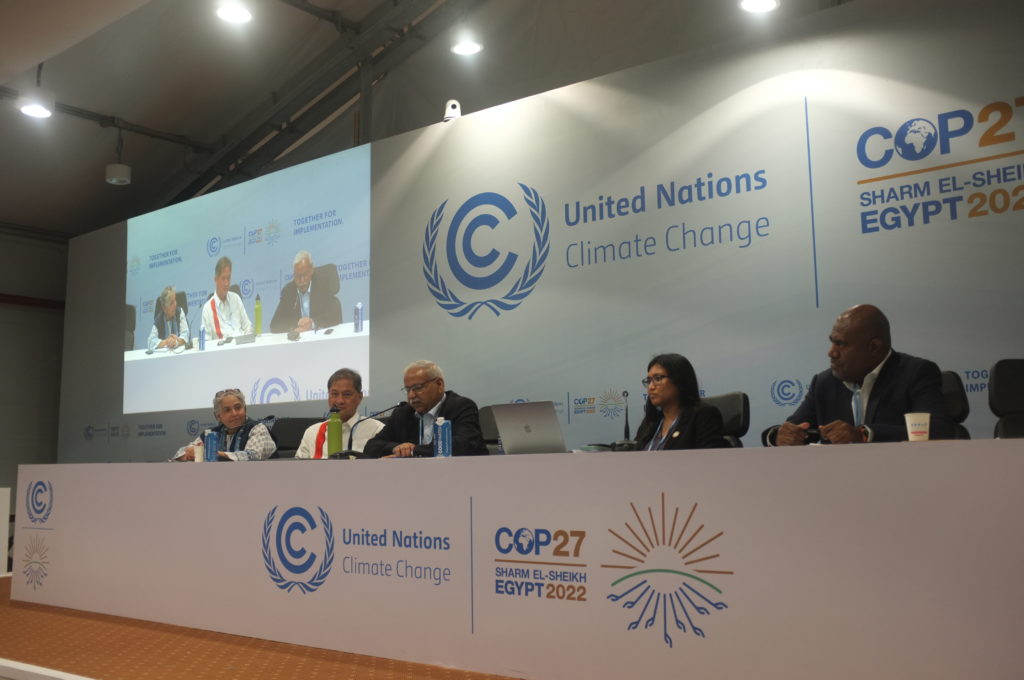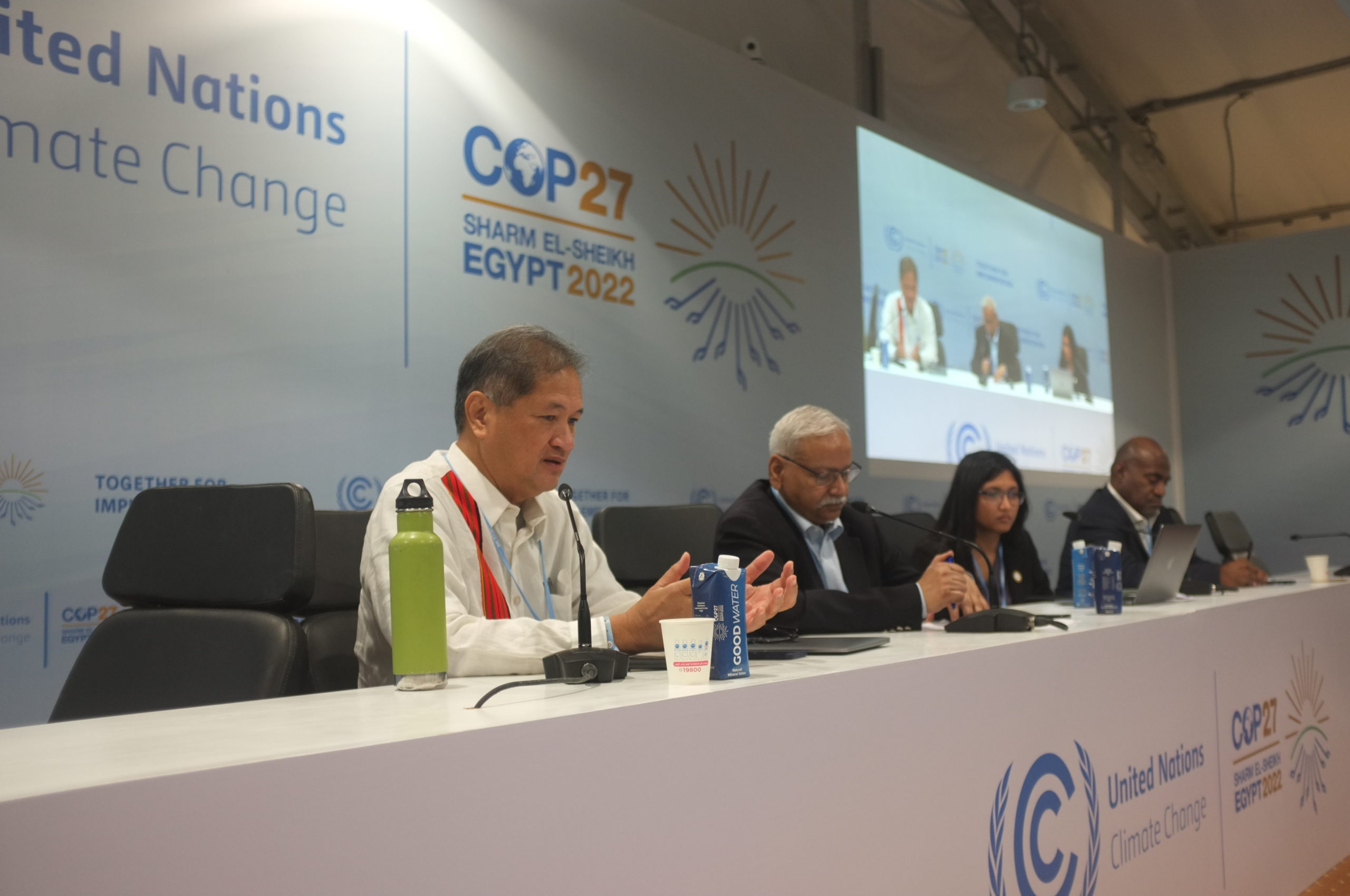By Tonichi Regalado (KLIMA – Manila Observatory)
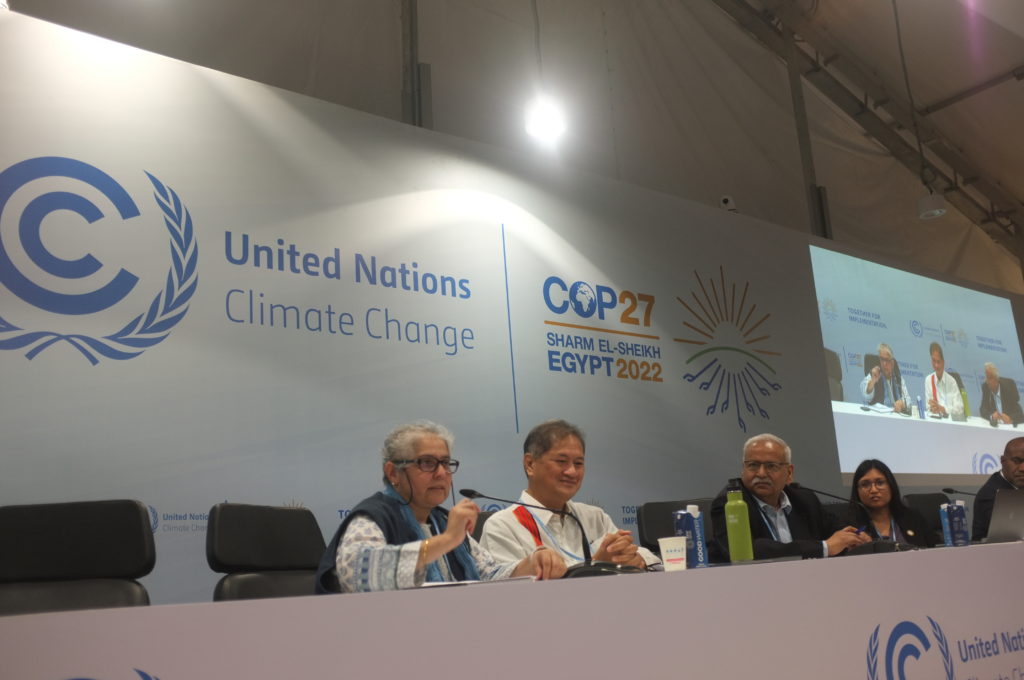
Allied for Climate Transformation by 2025 (ACT2025) partners, International Centre for Climate Change and Development (ICCAD) and the Manila Observatory (MO) held a side event entitled “Beyond Dialoguing to Action and Support to avert, minimize and address and loss and damage” at COP27 in Sharm El Sheikh, Egypt.
ACT2025 is a consortium of thought leaders committed to addressing, informing, and influencing the UN climate negotiations (of which the Manila Observatory has been a core partner since its inception).
The Era of Loss and Damage
Saleemul Huq, the Director of ICCAD said that we are entering the era of loss and damage as the calls for the establishment of a L&D financing facility echoed through the chamber halls of COP27 and made its way to the COP agenda and eventually, in an unprecedented, historic move, agreed on the creation of a loss and damage fund. It was a clear success, particularly for developing nations that have been enduring the burden of the climate crisis. Communities on the ground, first responders, and climate activists who have been calling for the establishment of a facility that can effectively address climate needs got their victory, but there’s still a long road ahead since the details and modalities of the fund still need to be ironed out.
The Santiago Network for Loss and Damage (SNLD) also found successful footing as text was adopted affirming that technical assistance should be in full compliance with the Paris Agreement’s preambular text on human rights. Established at COP25, the SNLD provides expert support to developing countries that need L&D assistance.
Fatuma Hussein, the SBI coordinator for the African Group of Negotiators on Climate Change, reiterated that the African group agrees with the SNLD’s institutional structure and its operational modalities. Hussein commented that adaptation actions are already covered by the existing financial mechanisms, so when it comes to aggressive L&D, it had to be a clear arrangement or mechanism.
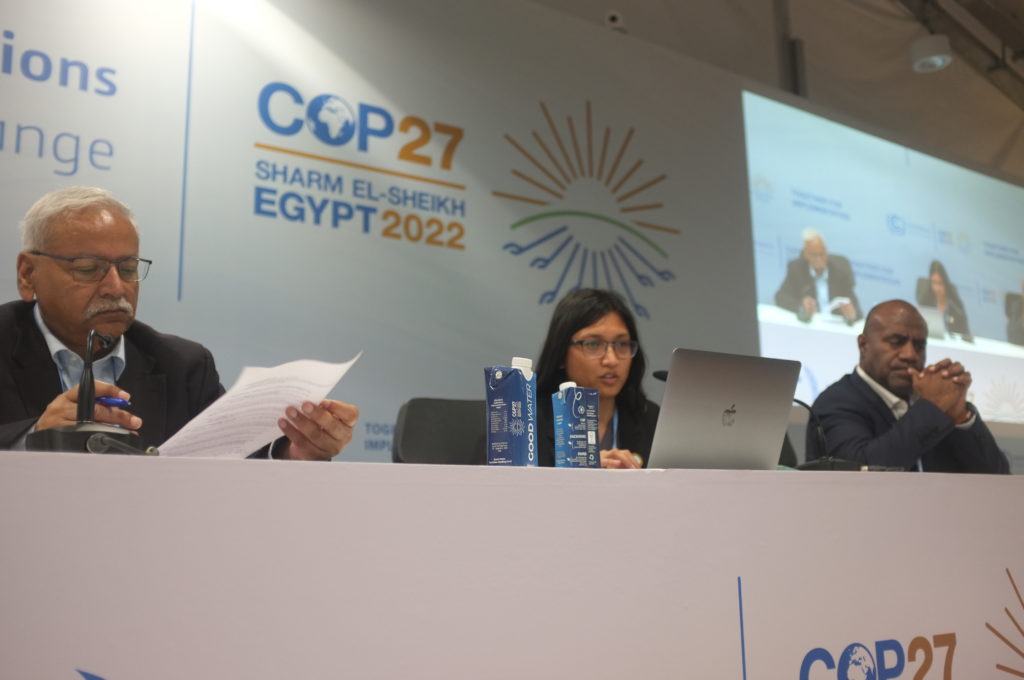
The Path Forward
Making headway on a technical level still remains the overall goal of ACT2025. As such, tangible streams in the direction of influencing negotiations need a strong financial basis to be swayed towards supporting a L&D facility.
Sara Ahmed, advisor to the V20 group of Finance Ministers and founder of the Financial Futures Center, expounded on the V20’s dedicated L&D funding program that will serve as proof of concept. In October, during the World Bank annual meetings, the G7 and the V20 came together to agree on the global shield against climate risks – in this includes the Climate Vulnerable Forum and V20’s joint multi-donor fund, a special window for Loss and Damage to deliver funds to those immediately suffering from the impact of climate change. “Access for [affected] communities has been almost nonexistent. If it does exist, it’s extremely hard to access,” said Ahmed. “It’s important to understand it’s trigger-based financing.”
Vulnerable countries and communities need prearranged resources ahead of time and the resources of the global shield program will come from a joint V20-Climate Vulnerable Forum fund and will be the kind of program that emphasizes quicker access as resources should be mobilized to respond to urgency.
In a nutshell, the spirit behind Loss and Damage is a matter of access – it is about how access can be made easy; L&D is not reactive (humanitarian) finance. What is needed is anticipated financing so that livelihoods are not lost and do not have to be forced to transition to different ways of life.
“When climate-induced disasters happen, you cannot go to these communities and talk about mitigation and adaptation – how can we do that when they are experiencing [the direct impacts of] climate change at the moment?” asked Tony La Viña, MO’s Associate Director for Climate Policy and International Relations. Vulnerable countries and communities often don’t have time to think about resilience and adaptation, so a separate L&D financial mechanism needed to be established.
The general idea is that parties have a “global obligation for restitution,” according to La Viña. People need to be restored and positioned to be in a better place in the future. It is in the same vein that the coming L&D financial mechanism must be designed to benefit the basic sector, as it can be an added layer of social protection.
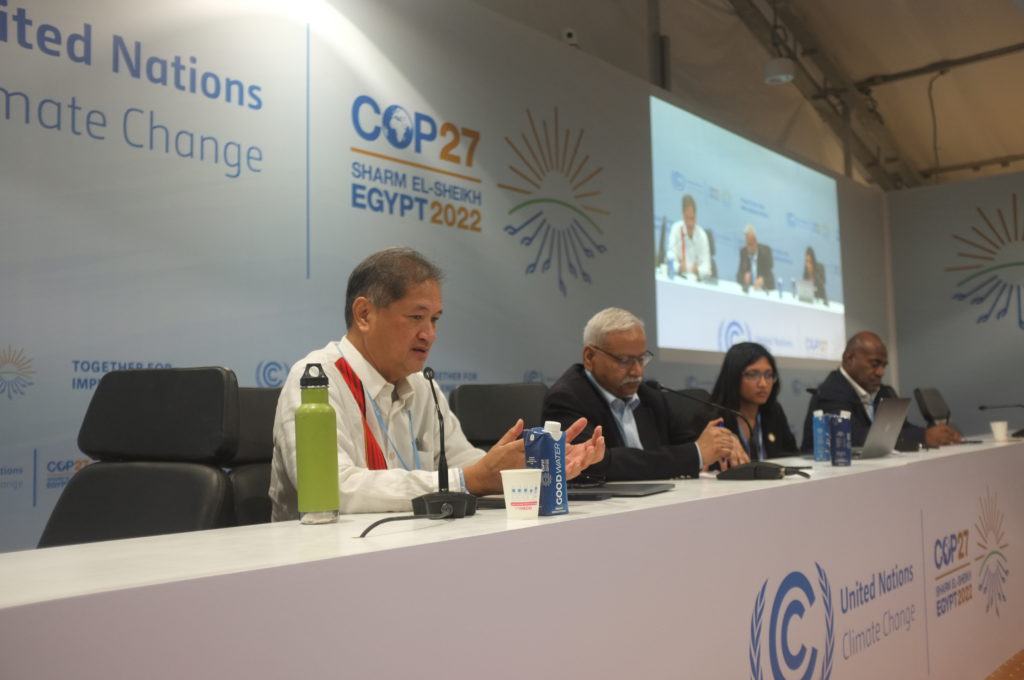
Working Together
Harjeet Singh, the Head of Global Political Strategy – Climate Action Network (CAN) International expressed cautious optimism with regards to the discussions on a political and technical level. “The reason L&D [was on] the agenda is because of G77+ China unity – that unity is being targeted. If we start playing into the hands of people who want to play divide and rule, we are going to lose it.”
The emotional backbone of the issue always seems to have been historical responsibility. Tensions continue to rise under the assumption that L&D is about pointing fingers when in reality, the targeting of historical polluters like the US is warranted under the concept of “paying your fair share.”
“When you apply the principles of equity and justice … it’s better to target countries who really have the biggest responsibility,” opined Singh on historical polluters. If the L&D facility were to be established at Sharm el-Sheikh (which it did), its skeleton of institutional functions and needs assessment would be sufficient. “We’re not asking for anything unreasonable here.”
The thinking of developing countries like the US and its state of play is the looming shadow over the at times antagonistic discussions outside the plenary halls. Preety Bhandari, the Senior Advisor in the Global Climate Program and the Finance Center (World Resources Institute) actually put forward that “that level of antagonism did well in getting all the issues on the table – venting probably helped out a bit.” In the informal spaces where negotiators across the aisle can talk, the conversations really boiled down to having empathy with vulnerable countries and people; there’s a mutual understanding that it’s not just the vulnerable countries that are seeing the extremes, but global north countries as well.
“One thing [the US] can do is dispel this fear of liability and compensation. It’s just such an unfounded fear in this discussion – it puts the US in a very bad light – you have historical responsibility and liability in the first place,” said Tony La Viña when asked about what the US needs to do to push the issue forward.
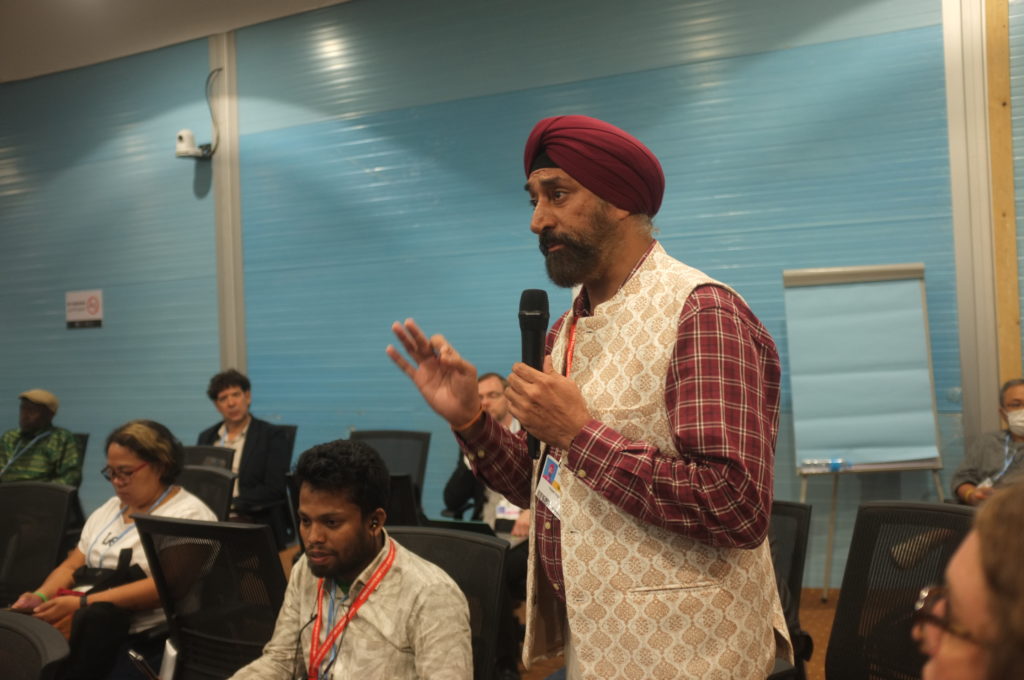
A Transformative Narrative
At the end of the day, the UNFCCC negotiations are tethered on telling the story of climate change with all parties struggling to find an ending. The point that most in the vulnerable climate sector believe is that the narrative of loss and damage should shift away from developing countries asking for more money; instead, it should be about fostering a transformative difference. Take for example coastal communities and coral reefs that sustain damage from water acidification and extreme weather – even if resources came flowing in from developing country aid, what community would there be to go back to?
Indeed that sentiment is shared by most of those working in the sector of L&D as it should be viewed as a funding facility for stricken communities to maintain their dignity, to transform their way of living into a sustainable and resilient future.
As COP27’s clock winded down, it seemed that parties and stakeholders found a need to reassess their assumptions on L&D and provide each other a long-term view on how to strengthen those on the frontlines of the climate crisis. Only time will tell, if the achievements at Sharm El Sheikh will be enriched and strengthened in the coming COPs.
